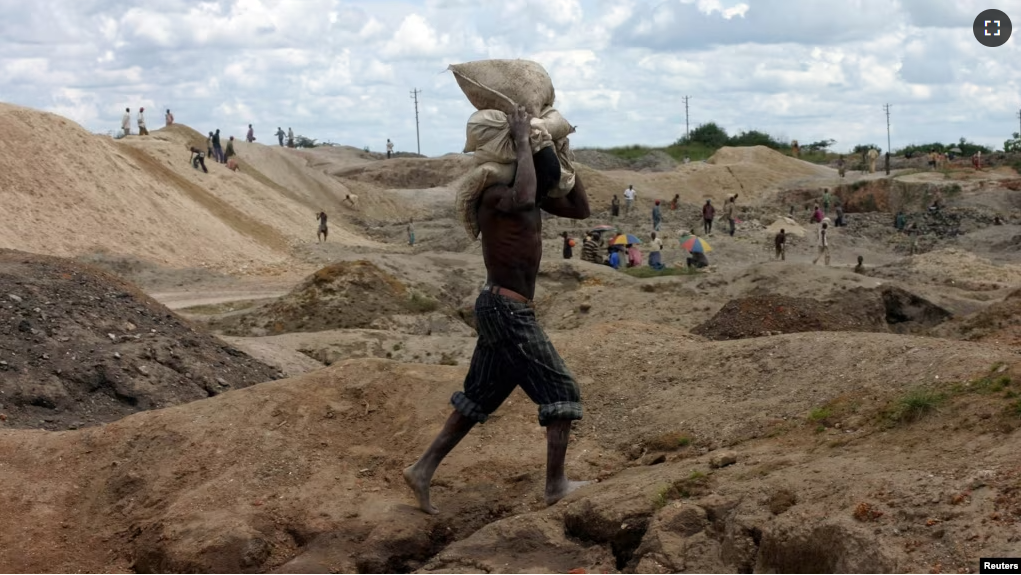Rights groups say mining cobalt and copper in the Democratic Republic of the Congo, known as the DRC, has led to human rights abuses.
London-based Amnesty International and a rights group based in the DRC released a report on the issue on September 11. It said mining companies forcibly removed people from their homes and farmland. Many of those affected said they were not paid enough.
The recent report also said people were attacked, including sexually attacked, and also had their property destroyed or damaged.
Cobalt is an element needed for long-lasting batteries in things like electric vehicles and similar technologies. The DRC is believed to have more cobalt than any other country in the world. The country is also Africa’s top producer of copper, which is needed in the electrical industry.
Criticism of the trade in cobalt, copper and other minerals in the DRC is not new. Amnesty International accused the cobalt mining industry there of using child labor in 2016.
In July, the U.S. House of Representatives introduced a measure to ban imported products containing cobalt and copper mined through child labor or other abusive conditions in the DRC.
Amnesty International has also reported many incidents of violence related to mining activity. In 2016, it said soldiers burned down a settlement to begin work on a cobalt and copper mine. The fire left a two-year-old girl with scars that will affect her for the rest of her life.
The rights groups said they talked to 133 people during separate visits in February and September 2022. The people were in six places around Kolwezi, a city in the south of the country, and were affected by the abuses related to cobalt and copper mining.
One neighborhood, home to 39,000 people, has been facing destruction because of the expansion of a copper and cobalt mine since 2015.
The rights groups studied documents, photos, videos, satellite images and company communications.
Amnesty International said companies are not doing enough to deal with human rights concerns. Chemaf is a cobalt and copper mining company based in Dubai that operates in the DRC.
Following protests in 2019, the company paid $1.5 million to former residents through local officials. People received between $50 and $300. But the report said that was not enough. None of the former residents were able to secure good housing.
The rights groups said the world is demanding more “green” technologies that are not linked to climate change. However, the mining of minerals that are needed for these green technologies are causing social and environmental harm.
The group said removing carbon from the world economy “must not lead to further human rights violations.”
I’m Andrew Smith.
Taiwo Adebayo reported this story for the Associated Press. Gena Bennett adapted it for VOA Learning English.
_________________________________________________
Words in This Story
scars–n. damaged skin
resident–n. a person who lives in a place
“green“–adj. environmentally friendly
